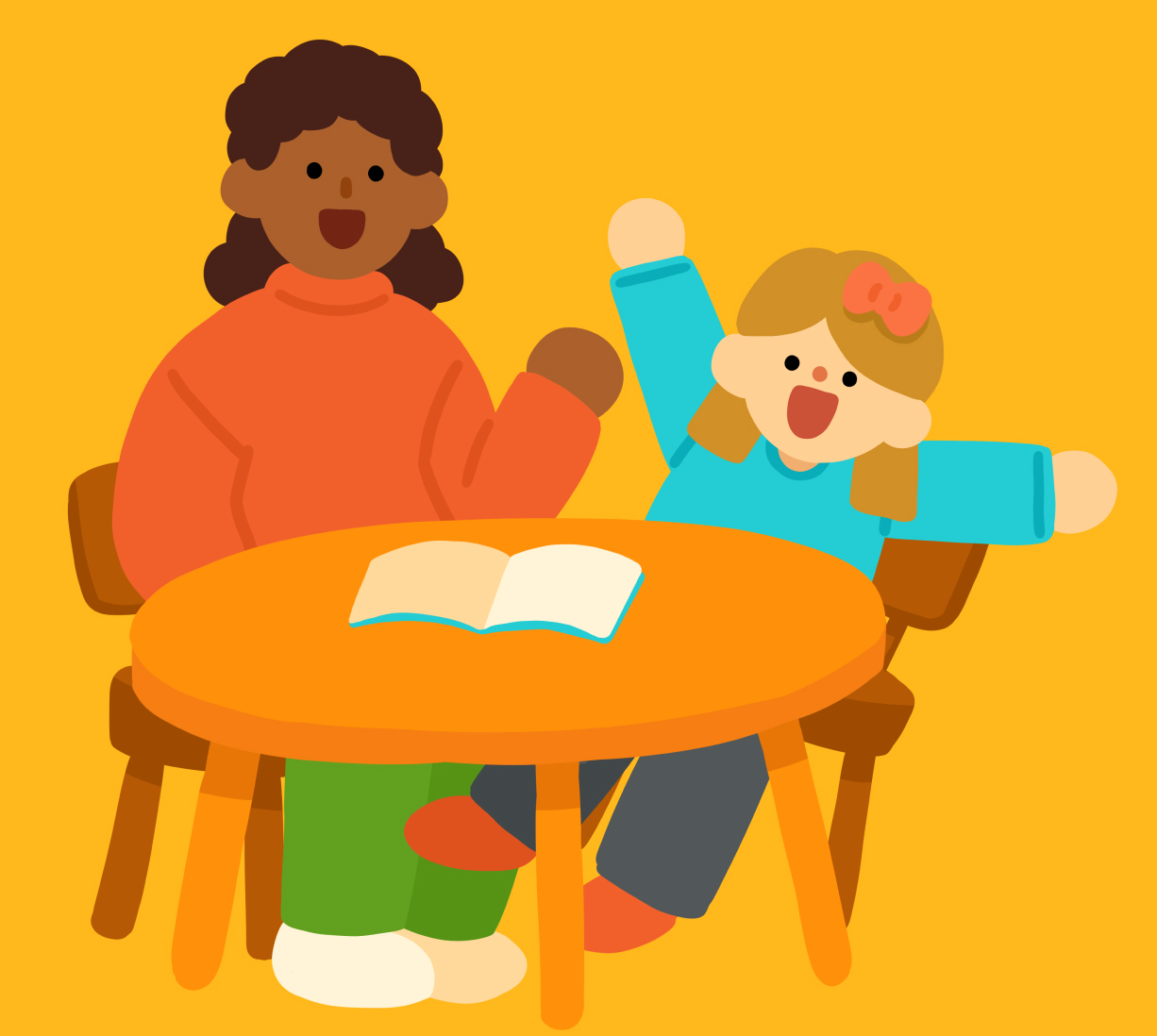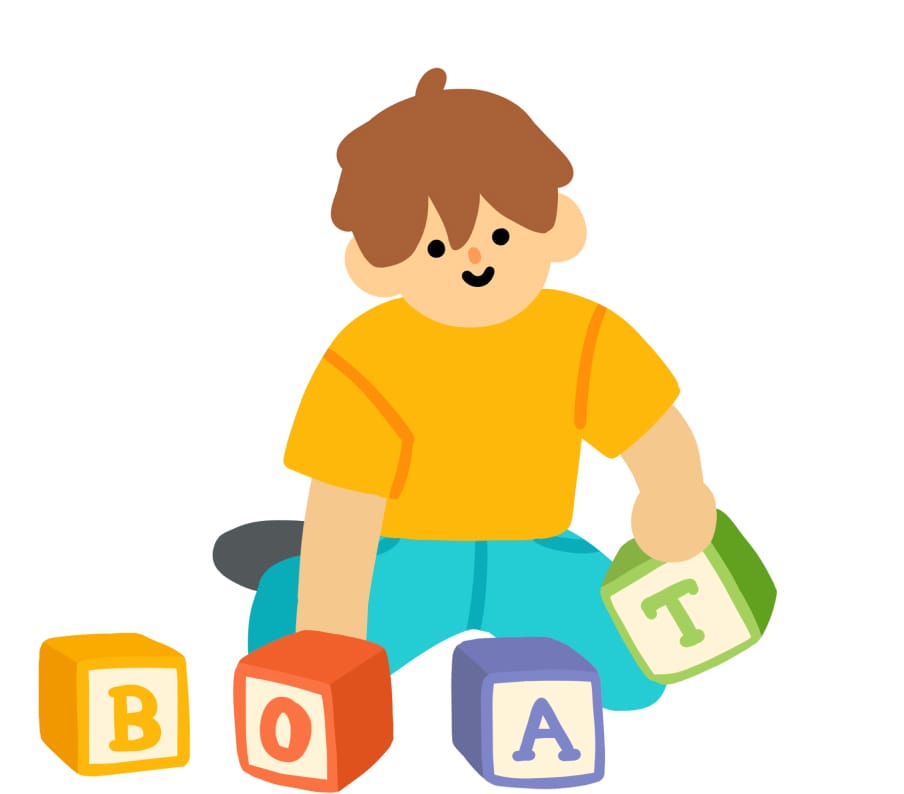
After reading
Module 6 of 7
Talk about the book
Take time after you finish reading to have an informal conversation about the book. Look in their faces and listen intently to the children’s ideas and what they are sharing with you. After reading aloud is a good time to keep talking together to focus on what’s special about reading. Learn about their interests so you can request books from the school that will engage them even more!
Don’t test children on their comprehension, just ask them to tell you about the book. Have a serve-and-return conversation and follow their lead.
Example prompts
Remember to wait after asking a question or making a comment. Count inside your head for 5-10 seconds. This quiet space helps children feel invited to respond and gives them time to think.
Expanding the reading experience
Open-ended questions
Use open-ended questions over close-ended questions. Close-ended questions only require a yes or no answer, whereas open ended questions require a child to form an answer, and allow for more discussion.
Close-ended question example
Q: Do you like going to the park?
A: Yes.
Open-ended question example
Q: What is your favourite thing about going to the park?
A: I love the slide.
Q: Why do you like the slide?
A: It’s so fast!
Comments
Adding comments, rather than questions, helps build rapport and encourage back-and-forth, serve-and-return communication that is so important for language growth. Comments are less directive than questions, and encourage the conversational turns to keep going.
Activities to try

Develop vocabulary
Talk about new, big, cool words by using child-friendly language and explain the main meaning of the new word by using words children are likely to know already. Invite them to say the new word out loud several times. Use multiple words which mean the same thing, which helps to increase the child’s vocabulary.
Have fun playing with rhyme
Try choosing a word from the book: What might rhyme with ‘pool’? School, stool, drool, cool, fool. Then make a silly sentence with the rhyming words. “The cool fool stood on a stool at school and fell into the pool.”
Play the Name Game
Use the cards to play the Name Game. Children enjoy this guessing game! The skills that it targets are oral language, asking and answering questions, categorizing, and reasoning.
Teach them a tongue twister
See if they can say it quickly. Slow it down and ask them to listen for the sound they hear most often in the words. Substitute their names into the tongue twister that begins with the same letter of their name.
Clap out syllables
- Ask the child how many syllables or word parts they hear
- Clap out the syllables in the word
- Make sure you pick out words that are pretty easy to clap out
Here are some examples:
- water: wa 👏 ter 👏
- butterfly: but 👏 ter 👏 fly 👏
- drum: drum 👏 (Just one! Kids often have a harder time when the word is just one syllable.)
Remember to model this to the child, you are teaching them this concept, not testing them!
Keep in mind
Take time to talk about the book
Read the book again sometime
Remember to READ EVERY DAY THAT YOU EAT!
